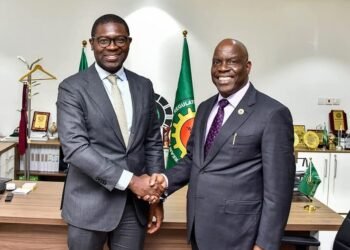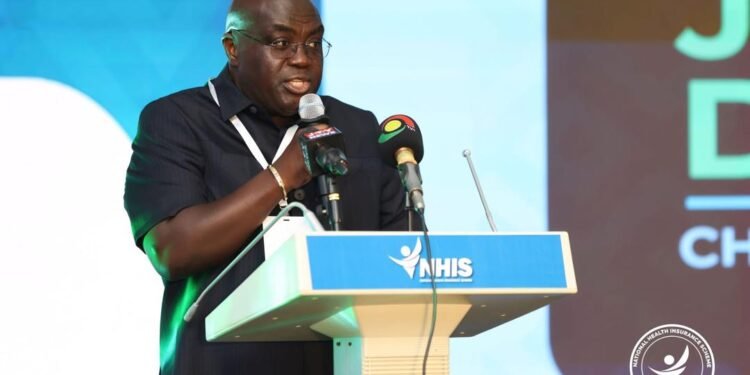Tema Oil Refinery and the Bulk Oil Storage and Transportation Company Limited (BOST) have signed a landmark Memorandum of Understanding to enhance cooperation, restart refinery operations, and strengthen Ghana’s downstream petroleum industry.
The signing ceremony, held at TOR’s headquarters in Tema, marked a pivotal moment for Ghana’s energy industry, as both institutions aim to leverage their individual strengths for national benefit.
TOR’s Managing Director, Edmond Kombat, described the agreement as a crucial step in restarting the country’s only refinery, which has faced years of operational difficulties and financial challenges.
Mr. Kombat stated, “We believe it is time for us to come together and work together to strengthen Ghana’s downstream sector,”adding that the partnership signals a fresh start for both organisations.
“Our teams have reviewed the outstanding issues, and we’re starting on a clean slate. This MoU sets the foundation for us to move forward.”
Edmond Kombat, TOR’s Managing Director

Speaking during the signing, Mr. Kombat emphasised the importance of a unified approach to overcoming systemic hurdles in the sector.
Central to the agreement is the resolution of longstanding debt reconciliation obligations that have historically complicated the working relationship between TOR and BOST.
With these financial disputes now settled, the partnership aims to build a more robust and efficient downstream system.
The collaboration will see TOR provide technical support to BOST in areas such as engineering, tank maintenance, and pipeline infrastructure.
In return, TOR will benefit from BOST’s extensive distribution network and trading acumen, capabilities that are essential for TOR’s efforts to restart refining operations and ensure long-term sustainability.
Strategic Energy Sector Revitalisation

BOST’s Managing Director, Afetsi Awonoor, echoed the collaborative tone, describing the institutions as “two sides of the same coin.”
He stressed that TOR and BOST’s success is interdependent and can only be fully realised through joint planning and execution.
“Just like TOR wants to lean on BOST’s trading expertise, we want to lean on their engineering know-how. If we work together, we complement each other.”
Afetsi Awonoor, BOST’s Managing Director
The partnership will span critical areas including the rehabilitation and expansion of pipeline infrastructure, maintenance of fuel storage tanks, transportation of refined petroleum products, and the streamlining of fuel logistics from refinery to market.
These efforts are intended to strengthen Ghana’s internal fuel supply chain, reduce demurrage costs, and ultimately lower pump prices for consumers.
The John Mahama-led government has signalled strong support for the initiative as part of its broader agenda to curb Ghana’s overreliance on imported refined petroleum products.

With fuel imports currently accounting for the bulk of domestic consumption, the administration views TOR’s revitalisation as essential to national energy sovereignty.
Officials from the Ministry of Energy and Green Transition have also highlighted the MoU’s alignment with the government’s industrialisation and job creation strategies.
By revamping TOR’s operations, hundreds of direct and indirect jobs could be restored, while improved efficiencies in BOST’s storage and distribution chain could generate additional savings for the state.
This renewed partnership also sets the stage for greater private sector collaboration, particularly in the financing and modernisation of Ghana’s oil infrastructure.
For now, both institutions are focused on translating the commitments in the MoU into action. The next phase will involve detailed joint workplans, implementation timelines, and reporting frameworks to track progress.
The successful execution of this MoU could serve as a model for other state-owned enterprises seeking to drive mutual growth through collaboration.
Ultimately, the TOR-BOST agreement represents more than a simple partnership; it is a strategic turning point that could redefine the future of energy infrastructure in Ghana.
READ ALSO: Ghana’s Mobile Money Borrowing Surges: 22% of Adults Now Rely on It – World Bank























